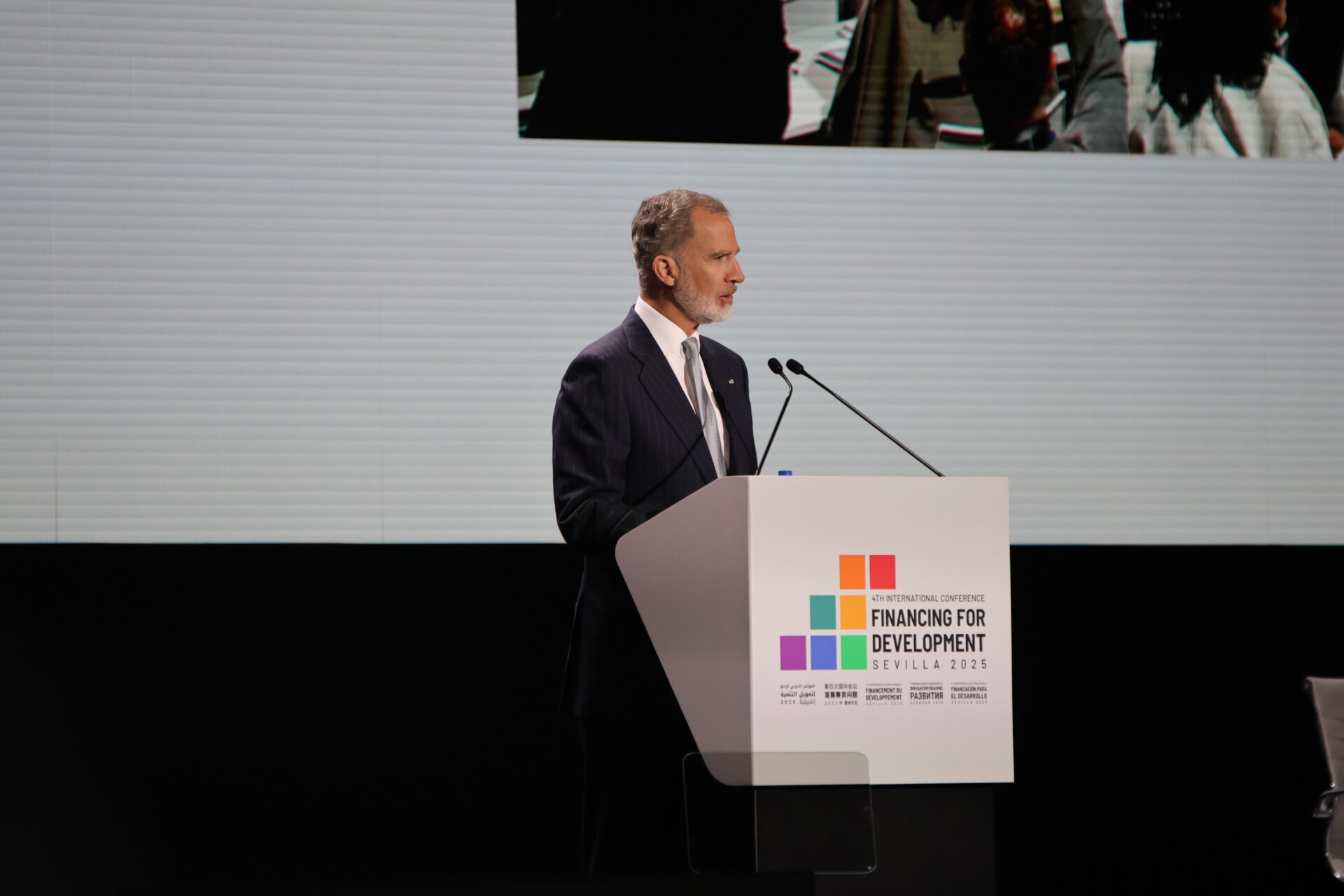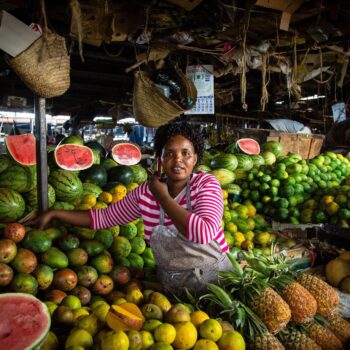- Political and financial leaders are convening this week (30 June – 3 July) for the UN’s Fourth International Conference on Financing for Development (FfD4) in Seville, Spain.
- Even amid growing economic pressures and geopolitical uncertainty, the conference offers critical opportunities to reaffirm ambition on reforming the international financial system and strengthening multilateral action on climate and development.
- Growing debt stress and fiscal pressure faced by many developing countries will be at the forefront of discussions at FfD4.
- Alongside UN COP processes, FfD is one of the only global forums that can deliver political consensus – giving all member states an equal voice. Countries have signed on to the outcome document – with the exception of the US, which withdrew late in the process. The resulting ‘Compromiso de Sevilla’ reflects the typical non-binding nature of UN agreements and contains few concrete commitments. But it could still be a foundation for progress. We also expect a number of specific and more tangible announcements from governments over the course of the week.
Story
The UN’s 4th International Conference on Financing for Development (FfD4) brings together political and financial leaders at a pivotal moment – a decade on from the Addis Ababa Action Agenda and with COP30 approaching – to discuss what must urgently change to get finance flowing for climate and development goals.
Following tense negotiations last week in Bonn, but positive signals from many governments and non-state actors at London Climate Action Week, FfD provides an opportunity for governments to show there is both a collective will and a plan to take action to support developing countries and ensure a more sustainable and secure future.
Against a backdrop of rising debt burdens and donor countries slashing aid budgets and increasingly aligning aid with national interests, the talks in Seville are a chance to:
- Show that there is a way forward to free up fiscal space in developing countries, including mobilising new debt instruments and a commitment to consider reprofiling lending terms when necessary for development goals.
- Implement targeted regulatory reforms to mobilise private capital, including by bringing the private sector into the centre of development finance by aligning prudential regulation with climate objectives, and use aid to reduce the risks the private sector faces in deploying capital in unfamiliar places.
- Create a more effective delivery architecture for international finance, including using country platforms to align public and private investment around national priorities and strengthening the role of national development banks and sub-national actors.
- Increase the scale of climate finance, including advancing specific measures to accelerate reform of the multilateral development banks (MDBs) and the international financial architecture and rebuilding political will to commit international public finance for climate and development.
- Support Brazil’s COP30 Presidency in advancing the Baku to Belem Roadmap to $1.3 trillion.
E3G’s new report, Getting on the Path to $1.3 Trillion, launched at London Climate Action Week, sets out a long-term vision across these topics for increasing the mobilisation of finance to developing countries, and provides recommendations for what can realistically be achieved in the next 1-2 years.
Quotes
Rob Moore, E3G Associate Director, Public Banks and Development said:
“Seville is a chance to show that there is at least a will to support development that underpins international security, prosperity and sustainability. What matters is what happens next – how are these warm words turned into real commitments and outcomes.”
Salvatore Serravalle, E3G Programme Lead, Global Macro and Financial Resilience said:
“Seville’s summit is where global voices gather not just to dream of financial reform, but to chart the course and commit to the hard work of making it real – turning a wish list into a work plan for a more resilient future.”
Available for comment
Rob Moore (EN), E3G Associate Director, Public Banks and Development (MDBs/DFIs, financial architecture reform, climate finance, geopolitics)
m: +44 7860861226 rob.moore@e3g.org
Salvatore Serravalle (EN, FR), E3G Programme Lead, Global Macro and Financial Resilience
m: +33 782142505 salvatore.serravalle@e3g.org
Laura Sabogal Reyes (EN, ES, DE), E3G Senior Policy Adviser, Public Banks and Development (climate and development, PBDs, country platforms)
m: +49 160 96466368 laura.sabogal@e3g.org
Amy Dodd (EN), E3G Associate (MDBs, public finance, adaptation finance)
m: +44 7530 707515 amy.dodd@e3g.org
– ENDS –
Notes to Editors
- E3G and the Institute for Climate and Society (iCS) are convening a closed-door discussion on adaptation finance during FFD4. The session will bring together progressive governments, major development banks, and private sector innovators to identify concrete solutions to address the structural barriers in mobilising adaptation finance – particularly through country platforms, prudential regulatory reform and innovative financing mechanisms. Read our recent briefing Bridging the finance gap for adaptation – E3G
- E3G is an independent climate change think tank with a global outlook. We work on the frontier of the climate landscape, tackling the barriers and advancing the solutions to a safe climate. Our goal is to translate climate politics, economics and policies into action. About – E3G
- For further enquiries email press@e3g.org or phone +44 (0)7783 787 863.
- Register for our journalist WhatsApp briefing service to receive updates and analysis for key geopolitical and climate events over 2025 on the road to COP30: E3G WhatsApp registration for journalists – E3G.


